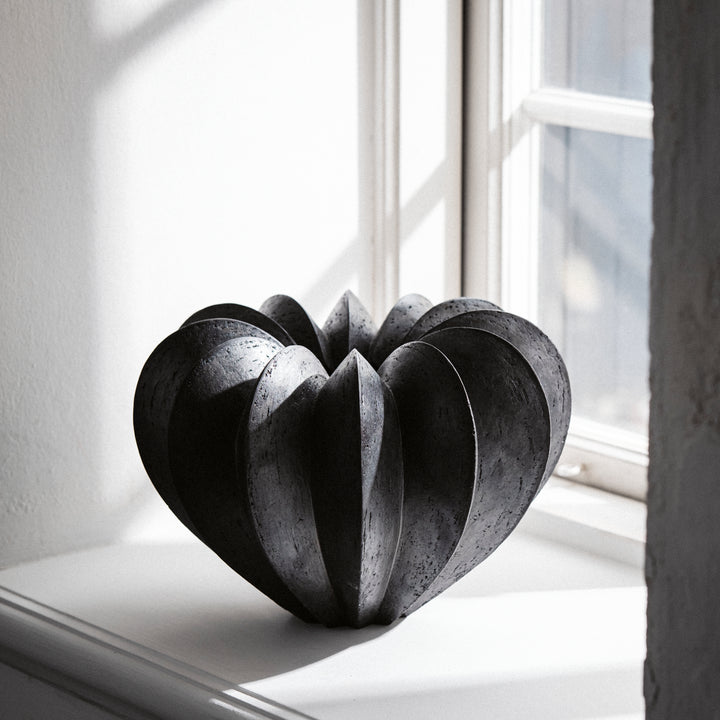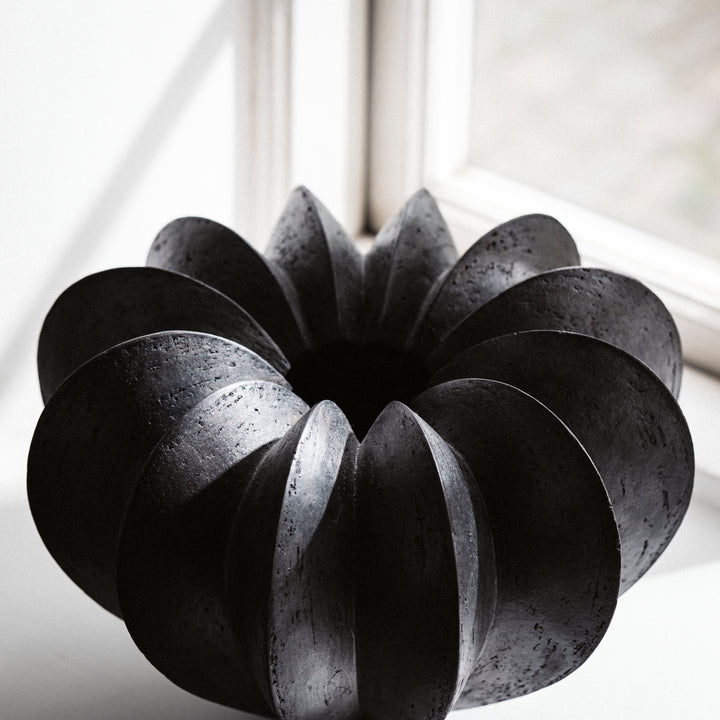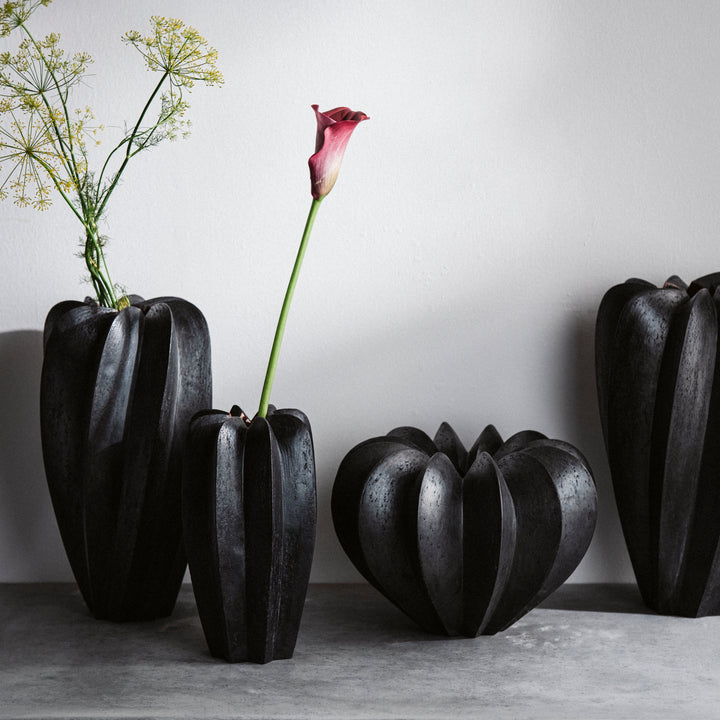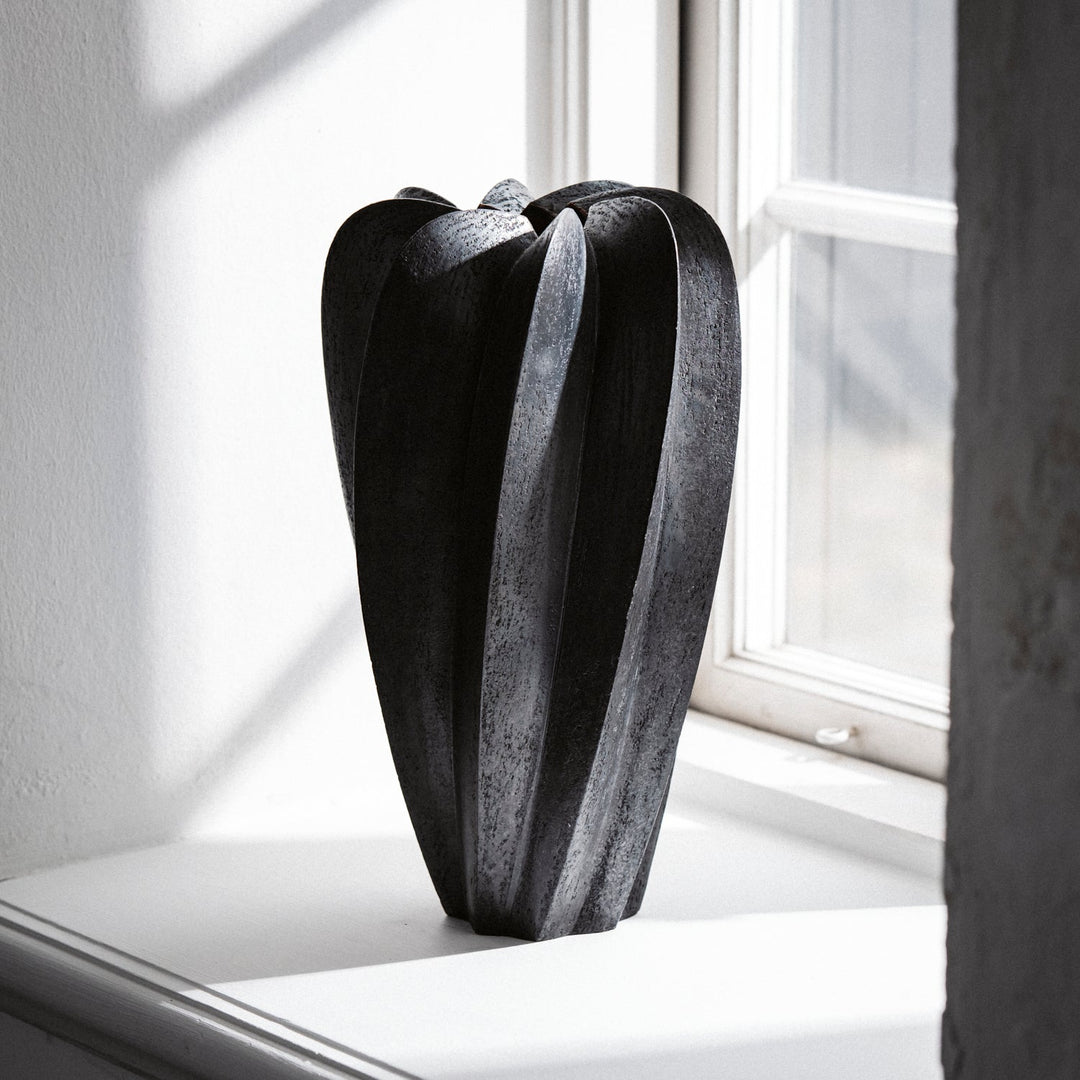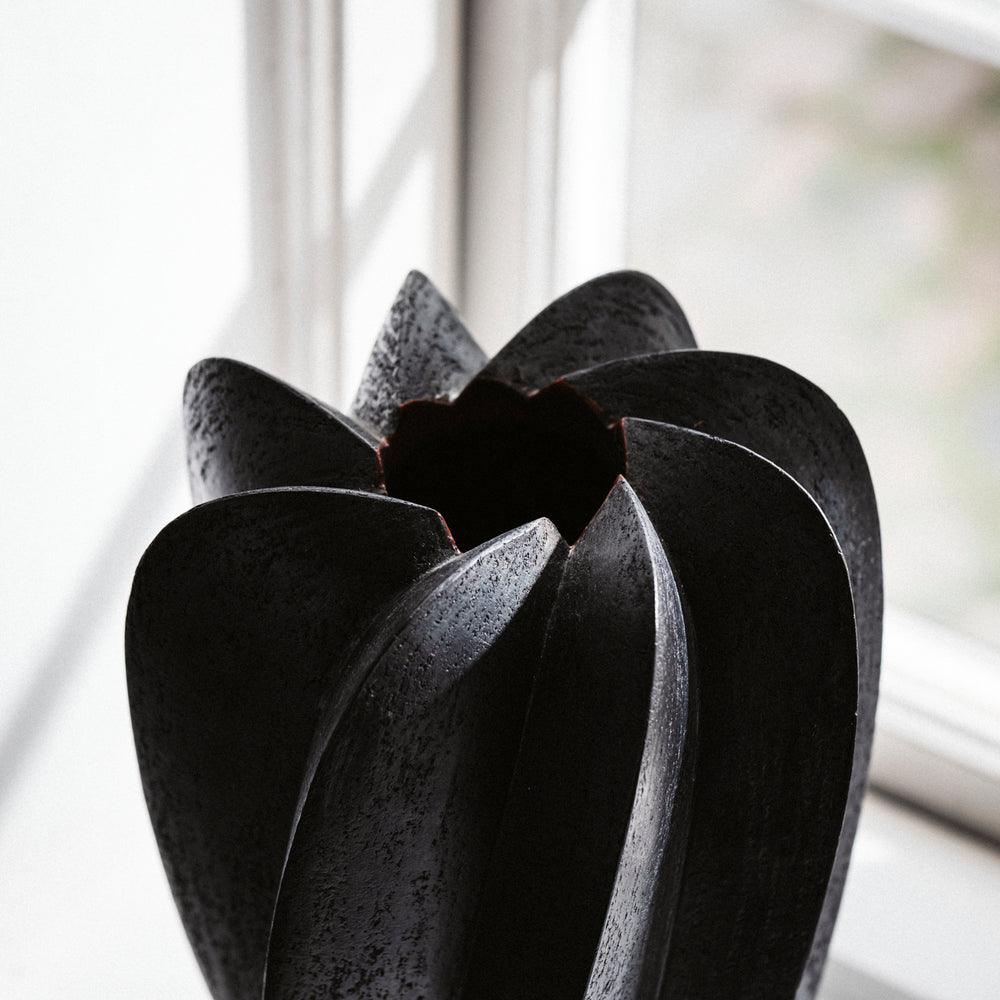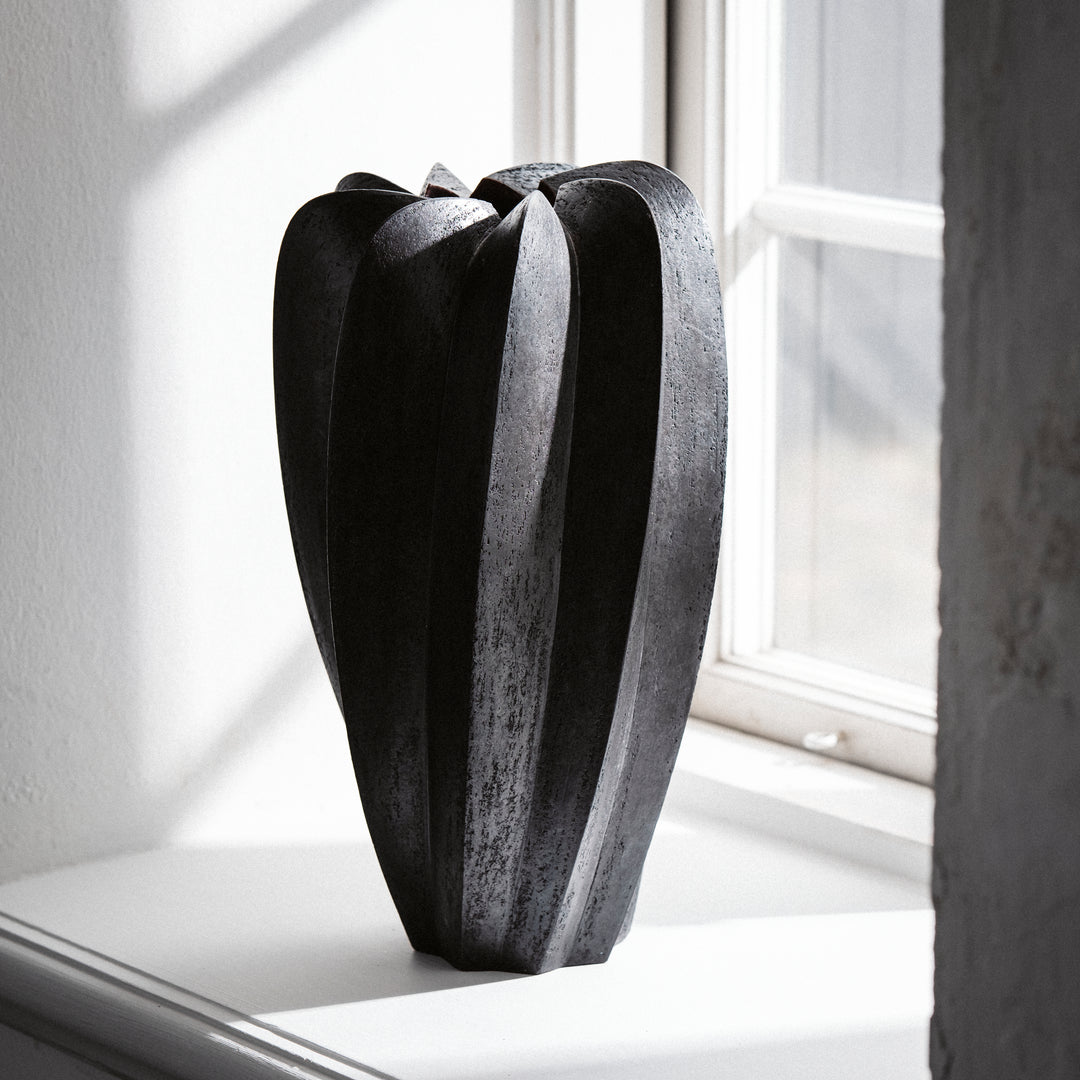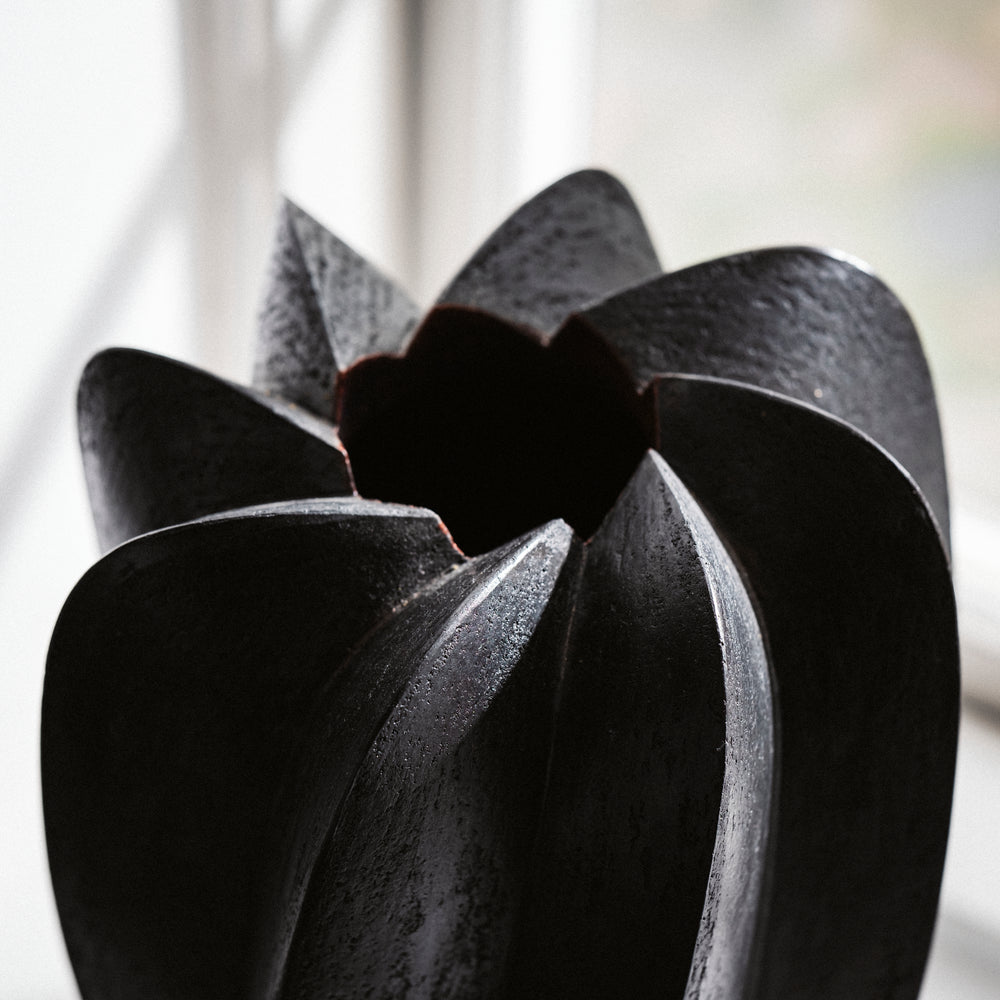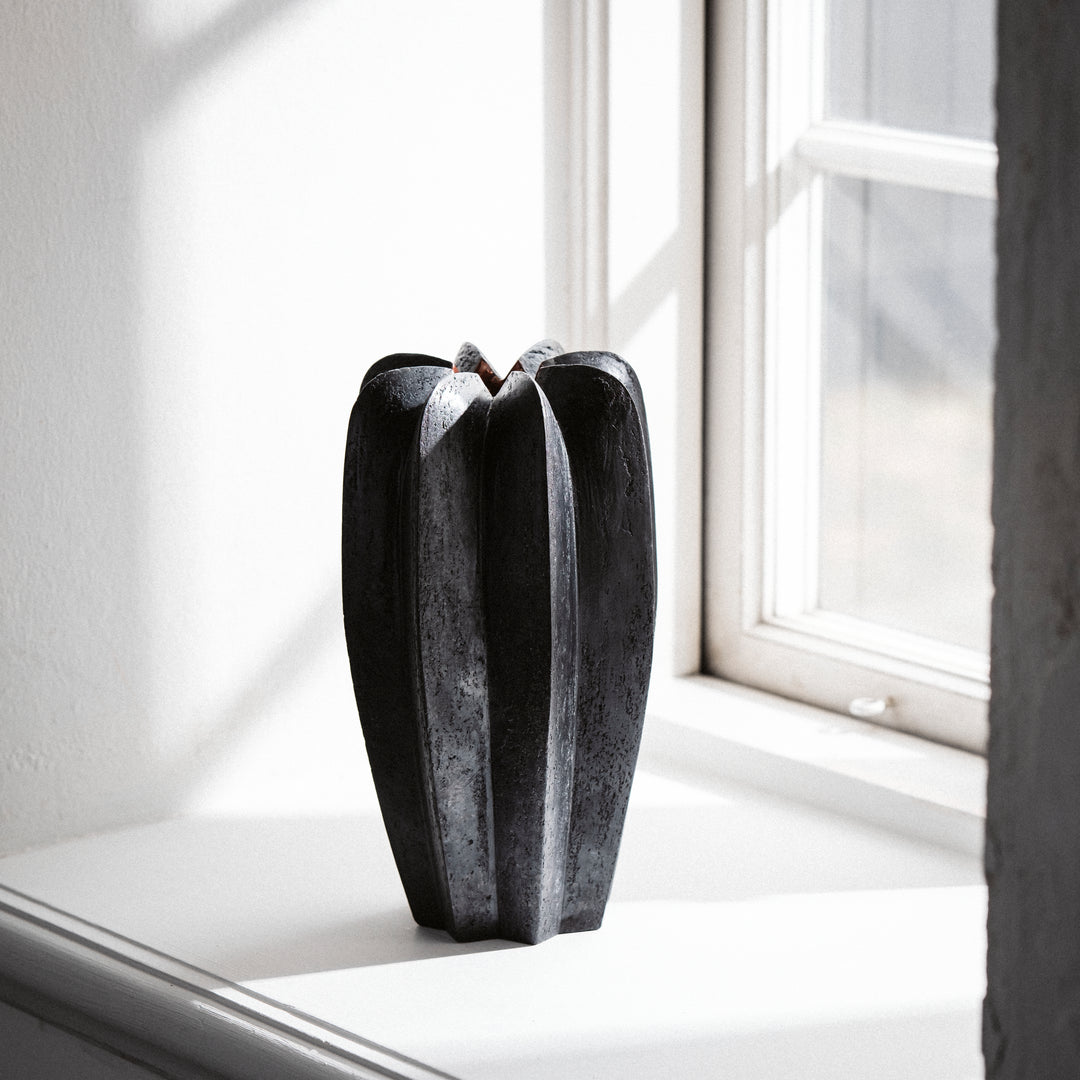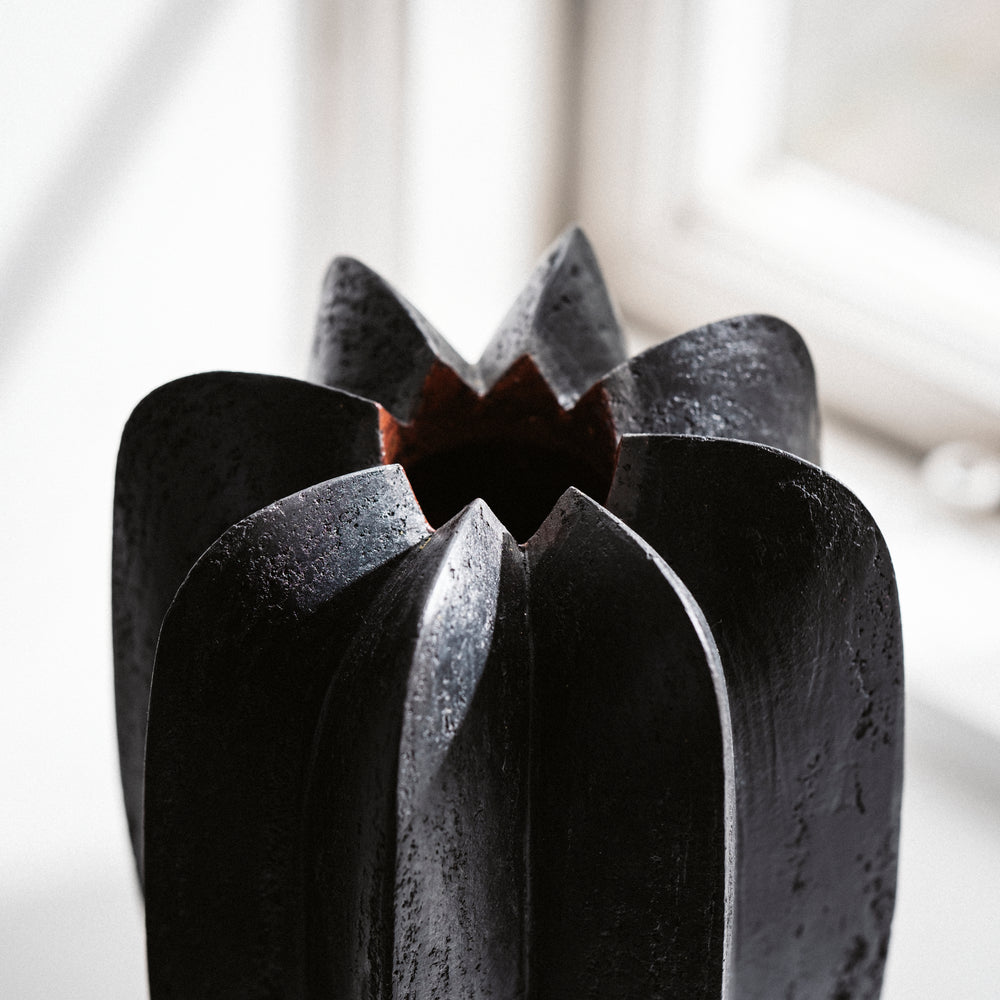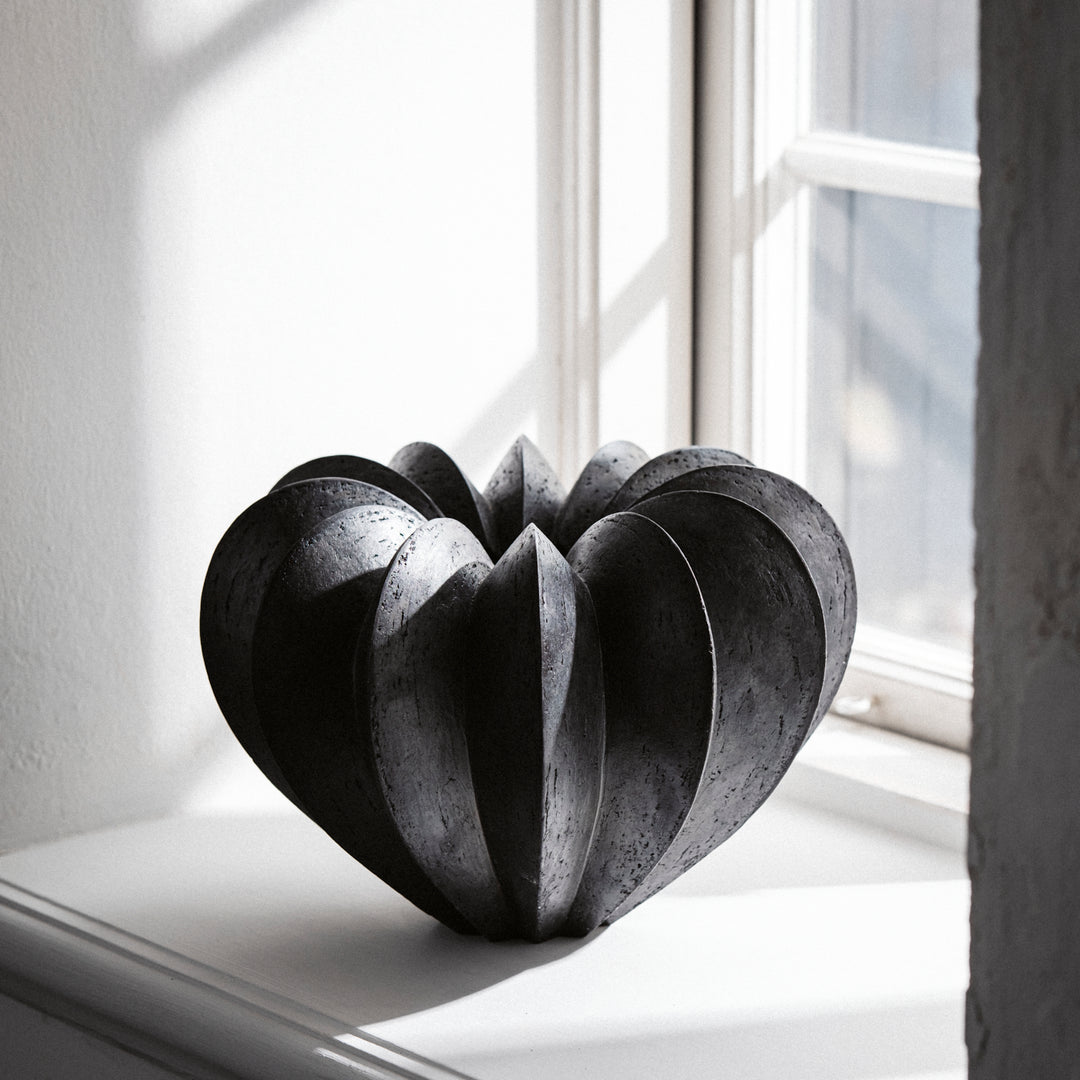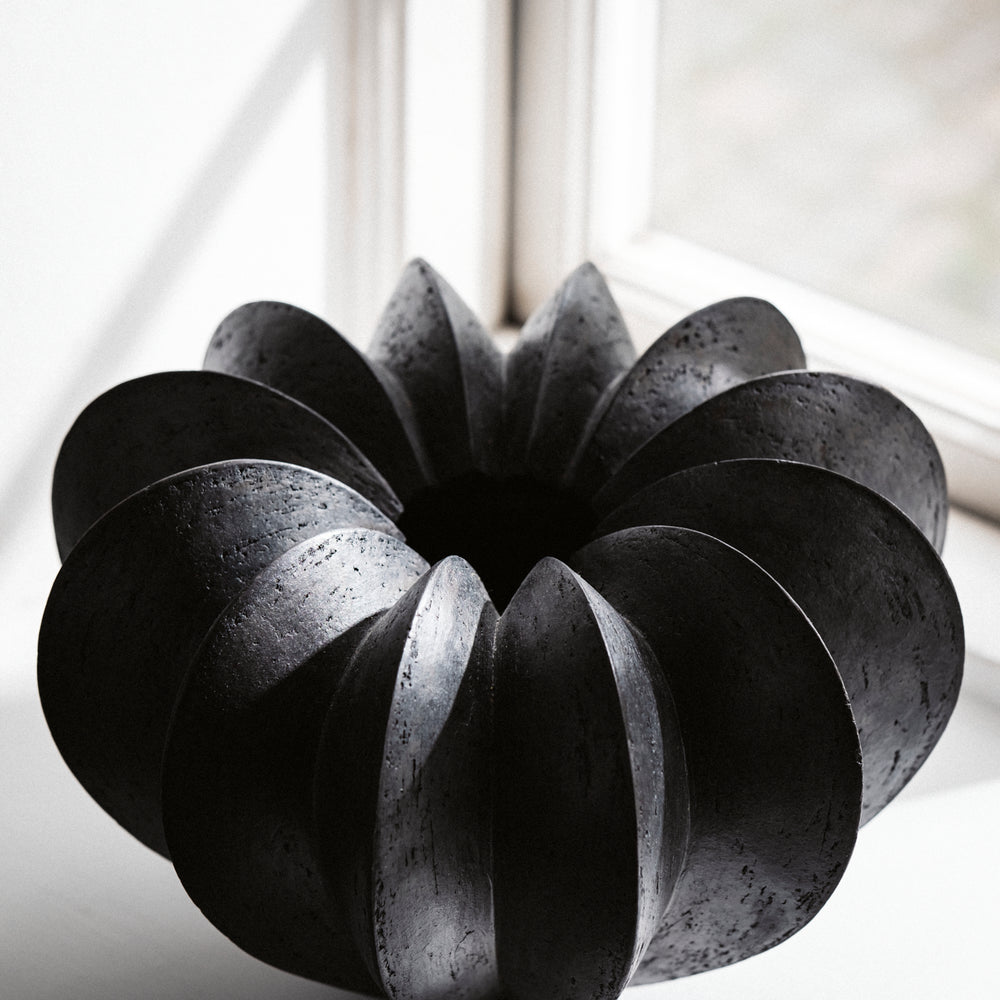Manufactory
Joachim Lambrecht
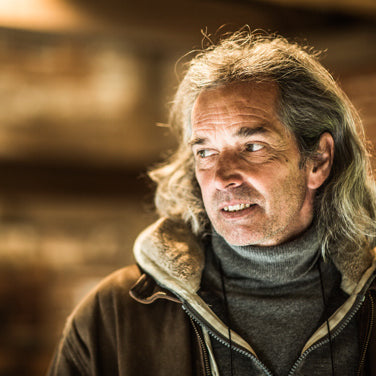
About this object: With its sculptural appearance, this ribbed vase is a real eye-catcher in any room. Black, 33cm in circumference and weighing 9.5kg. Light and shadow bring out the extraordinary shape of the ribbed vase. Simplicity, clarity and rigor are important criteria in the creation of the ceramic objects built and turned by Joachim Lambrecht. Each piece is unique and must meet sculptural standards. Each vessel is a sculpture.
Production: This ribbed vase, handmade from clay, was fired using the Raku process. Raku - originally from ancient Japan - has now developed into a diverse, experimental and expressive firing method among Western ceramicists and is becoming increasingly popular. In this method, the pieces are fired in a wood or gas kiln at approx. 1000 degrees Celsius.
After the glaze has melted, the kiln is opened, the ware is removed with long tongs, placed in sawdust and smoked in the absence of air. The objects remain in the sawdust for approx. 24 hours so that they do not cool down too quickly and the smoking process can take place as intensively as possible. This procedure causes carbon to become deeply embedded in the surface of the ribbed vase, resulting in a black surface with an exceptional feel. The surface bears traces of tongs and smoke and owes its liveliness and individuality to these traces. The vase feels warm and "flattering", even though the object is rock-hard and heavy.
We offer reliable shipping for our products to various destinations. Here are our shipping options:
Germany:
EU countries:
Switzerland: Information regarding transportation costs to Switzerland can be found here.
Please note that the stated delivery times are estimates and may vary depending on the destination and current circumstances. We are always working to get your orders to you as quickly as possible.
For further information or special inquiries about shipping, please do not hesitate to contact us. to contact. We are happy to answer your questions.
Joachim Lambrecht (b. 1958, Heilbronn/Neckar, d. 2023) was a sculptor and ceramicist and his works with ceramic material united these two sides of his artistic personality. He created objects that have the character of vessels on the one hand, but also have thematic references to architectural elements or boat shapes, for example. Organic and technical associations also come to mind when looking at his works. The formal language of his works is strict, clear and reduced to the essentials.
After training as a ceramist and subsequently studying sculpture at the Stuttgart State Academy of Fine Arts, Joachim Lambrecht has devoted himself increasingly to ceramic works since 1995. He designed his pieces like sculptures, always with a strong reference to the surrounding space - powerful, clear and auratic. This is where the sculptor showed himself. He created works that are at home in both worlds through their combination of vessel and sculpture: In the free and in the applied arts. His objects are brought to life by the raku firing method, in which the pieces are removed from the kiln red-hot and then smoked in sawdust, leaves or grass, for example. The resulting surfaces bear the traces of tongs and smoke and thus display a unique expressiveness. The raku firing method originally comes from Japan, where it was developed in the 16th century as part of the tea ceremony. Joachim Lambrecht used this method because its spontaneity and directness in handling the fire make it very suitable for individual artistic pieces.
In 2008, Joachim Lambrecht was awarded the Baden-Württemberg State Prize for "Design-Art-Crafts". In its statement, the jury wrote: "Joachim Lambrecht has made a masterful contribution to a central theme of contemporary ceramics - the development of the vessel towards use-free, sculpturally autonomous forms - in this country and far beyond".
Joachim Lambrecht was regularly represented at national and international exhibitions. He lived and worked in Großschönach near Überlingen/Lake Constance.





